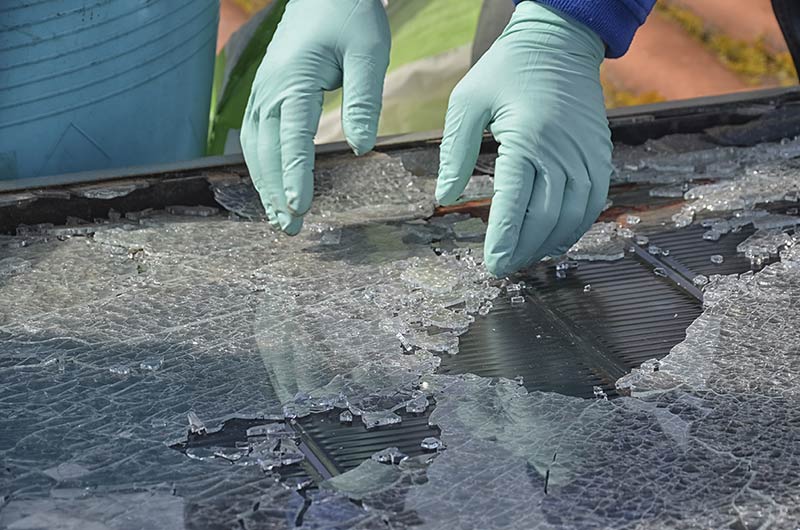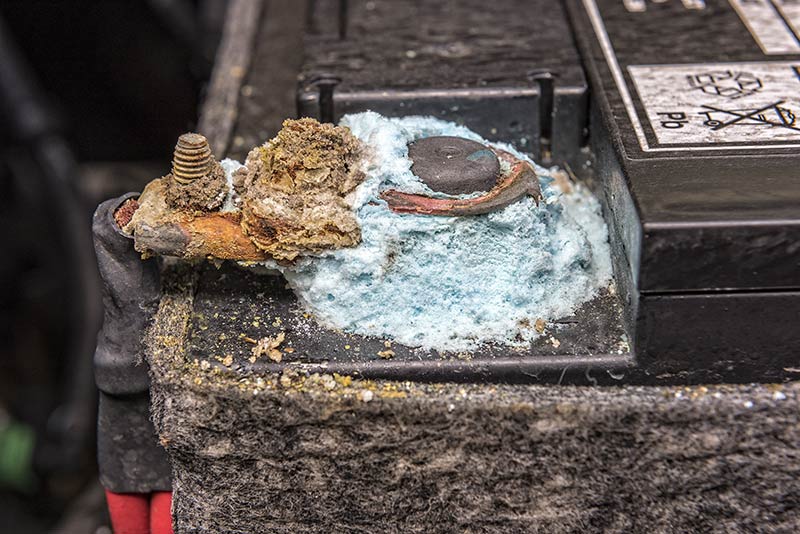
Solar panels are so durable and work for such a long time that you may never have considered what to do with them when one breaks or the array finally stops producing power. But nothing lasts forever – and if you find yourself wondering how to dispose of solar panels, don’t just head for the dump. There may be a better option: recycling.
When it comes to recycling solar panels, the “why” is pretty obvious. Because they produce electricity without emitting pollution or greenhouse gases, they’re synonymous with environmental stewardship – so recycling solar panels is certainly preferable to sending them to a landfill.
But can solar panels be recycled? When most of us think about recycling, we think in terms of plastic containers, glass bottles, and cardboard boxes – not large manufactured goods. While solar panels aren’t as easily recyclable as a glass bottle – which can be reused for the same purpose with a minimal energy input – most are constructed with easily recyclable materials like aluminum (the frame) and glass (the face). The internal materials (copper wiring, precious metals, and even the silicon in the PV cells themselves) have recycling value as well, for things like electronics and even new solar panels.
Solar Panel Recycling Companies
So recycling solar panels is a good idea and is possible to do. But where? The unfortunate truth is that companies with facilities to actually recycle solar panels are not common and municipal recycling programs don’t accept them due to their physical size and the labor costs involved with breaking them down into their component parts. But some private solar recycling companies do exist, and are listed on SolarRecycle.org. Many also recycle inverters and deep cycle batteries too.
As of May 2022, solar panel recycling companies are only operating in 18 U.S. states. Because modules are so long-lasting and durable, and because they’ve only truly become mainstream over the last 25 years or so, the supply of dead PV for recycling just isn’t that high. But as more and more panels currently in service age and degrade, and as the demand for precious metals continues to increase worldwide, the industry of harvesting useful materials out of old solar panels is poised to grow. We’re hopeful that will lead to expanded access to solar system equipment recycling options across the U.S. and the world.
To learn more about the solar panel recycling process and the companies that currently offer it in the United States, visit SolarRecycle.org. In addition to being a solar recycling company database, they also list companies that accept functioning, used solar equipment donations for re-commissioning in underserved communities and list companies that buy and sell used solar equipment.
If recycling your old solar panels isn’t feasible and you’ve got to take them to the dump, you might consider repurposing one or two of them into a coffee table or garage workbench to memorialize them for all the electricity they gave you over their long life – and to keep them out of the waste stream for another several decades.

Solar Panel Conference Table by ToddDuvallDesign, available on Etsy
Lead Acid Battery Recycling
Solar batteries age and degrade, too – and more quickly than panels. Recycling lead acid batteries after they’re removed from service is critical for a few reasons. First, the concentrated lead contained in them is toxic to people and animals, and a public health and safety threat if allowed to enter the soil or groundwater. Second, the sulfuric acid from these batteries is highly corrosive and emits highly flammable hydrogen gas.
Whether or not your state has regulations on how to dispose of lead acid batteries (most do; check the Battery Council International’s website for your state’s laws), you should never discard them in your household trash, take them to a landfill, or incinerate them.
Fortunately, it’s much easier to recycle lead acid batteries than solar panels because so many more places accept them. As with most things, a quick internet search for lead acid battery recycling near you is a great place to start. If you’re having trouble finding a convenient place to take them, Battery Recyclers of America will come pick them up for a fee. They will even do pickups in remote off-grid locations.

Corrosion from sulfuric acid on a lead acid battery terminal
Lithium Battery Recycling
Among the many advantages of lithium ion batteries over lead acid batteries in renewable energy systems is the fact that they contain fewer toxic materials (in fact the most commonly used kind, lithium iron phosphate/LFP batteries, don’t contain any toxic materials at all). But all lithium batteries should still be recycled instead of thrown into the garbage. They contain precious metals (most notably lithium itself) that are in high demand for an increasing number of consumer products. Mining “new” lithium from the earth is an expensive, time-consuming, and pollution-emitting process, so it’s important we try to reuse the lithium already “in service”.
Remember the “reduce, reuse, recycle” environmental protection slogan? Lithium batteries’ high energy density reduces the number of batteries (and therefore the amount of raw materials) needed to store energy. Some lithium batteries – most commonly those used to power electric vehicles – can be reused in less energy-intensive applications after their capacity drops too low for continued EV use. This “second life” lithium battery market is small but poised to grow. And for those without much “second life” value, lithium battery recycling facilities are happy to break them down to harvest the lithium and other precious metals inside – and also the plastic from their exteriors.
Battery Recyclers of America offers pickup service for recycling all kinds of batteries, including lithium batteries, but check locally first to see if lithium battery recycling for your old batteries is offered nearby for cheaper.

